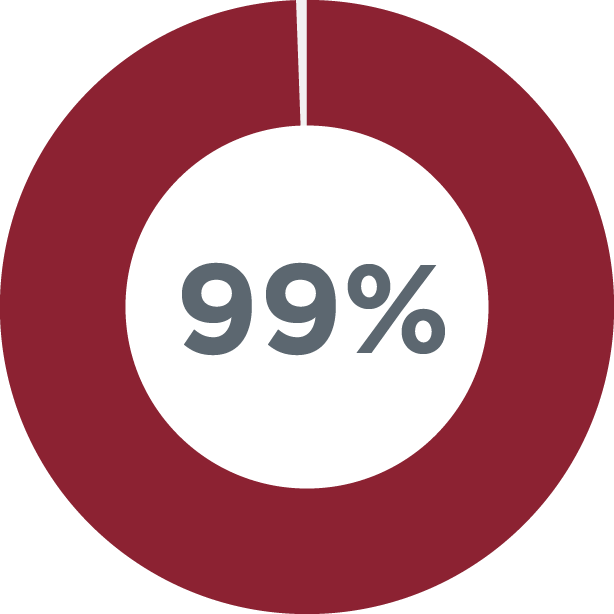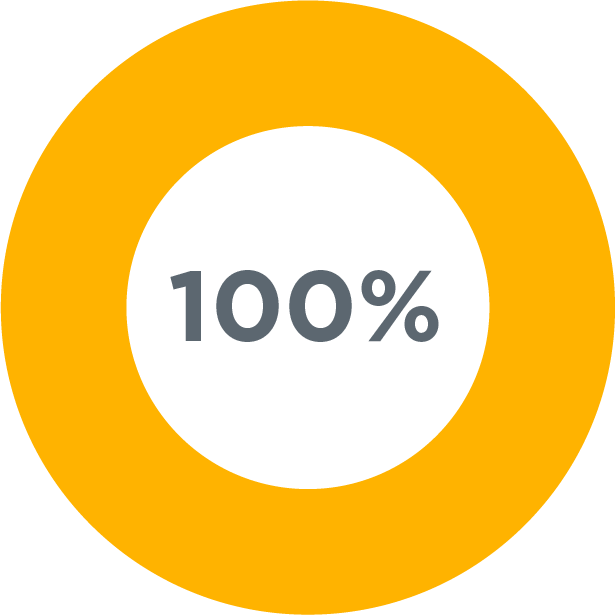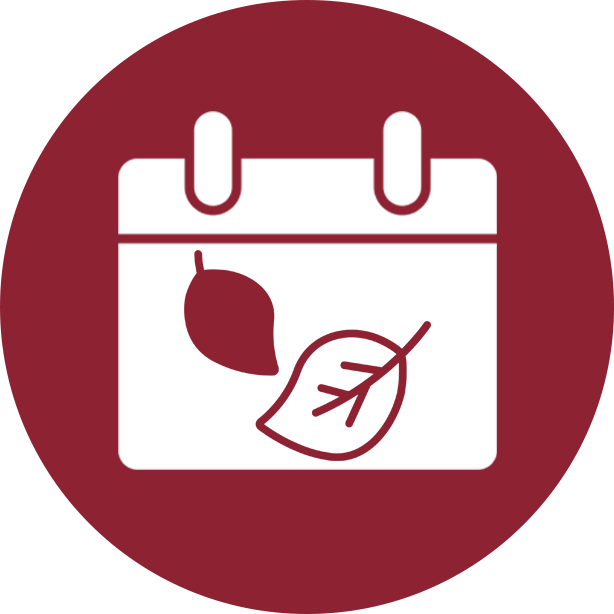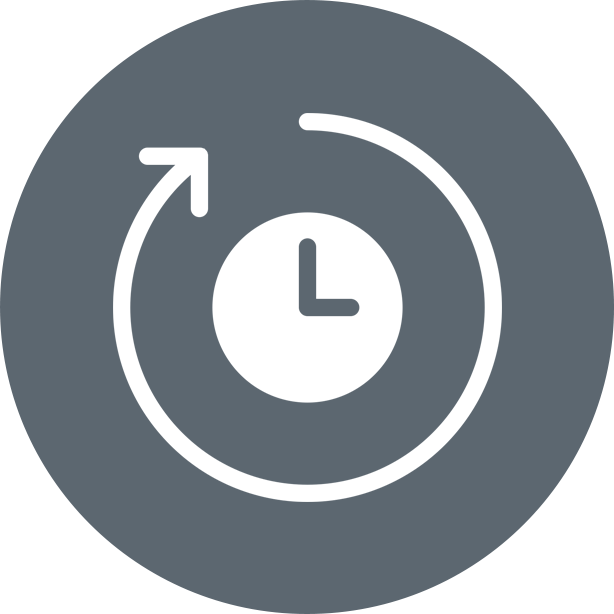
M.S. in Speech-Language Pathology (SLP)
As a speech-language pathologist, you’ll work with patients to treat their communication, speech and swallowing disorders. Along with patient diagnosis, SLPs determine the best approach for therapy. While many SLP practitioners work in childhood education, there are opportunities to help patients of all ages improve their speech and communication skills.
The Speech-Language Pathology Program in the School of Health Sciences and Practice is a full-time, two-year program with an emphasis on medical clinical experience. While our focus on medical speech-language pathology is geared towards a career in hospitals, skilled nursing facilities and clinics, our program prepares you for any professional setting.
Our program introduces you to clinical work early on and gives you an opportunity to apply your classroom knowledge at our on-site Boston Children’s Health Physicians clinic. Over the course of the program, you’ll have rotations across a variety of clinical settings, such as acute care, private practices and outpatient centers. This rigorous training will make you stand out as well well-qualified graduate, regardless of where you choose to seek employment.
Our curriculum integrates research, academics and clinical application and we’re committed to evidence-based and ethical practice in our healthcare services.
Learn About the Speech-Language Pathology Program’s Medical Focus
[gentle music]
[White Logo with Seal: “New York Medical College, A Member of the Touro College and University System; School of Health Sciences and Practice, and Institute of Public Health”]
[Maroon background; bold gold lettering that reads, “Speech-Language Pathology”]
[speaking: Vikas Grover, Ph.D., CCC-SLP Associate Professor, Academic Program Director and Director of Speech Perception and Production Lab, and Accent Expansion Clinic]
GROVER: We have two speech programs
[Image: a man in a grey sweater, seated, holding up two flashcards, one of a gumball machine, the other of limes, while an older gentleman in a blue shirt, seated, points to the flashcards]
GROVER: here at New York Medical College;
[Image: Vikas Grover, Ph.D., CCC-SLP, TSSLD, Assistant Professor of Speech-Language Pathology; wearing a grey suit, navy blue tie, glasses, seated in an office in front of a window with a plant (blurred) and a colorful image hanging on wall (also blurred)]
GROVER: Master's in Speech-Language Pathology,
[Image: three women, standing and sitting, smiling at a baby in a highchair, reaching for a pouch of baby food]
GROVER: and an Advanced Certificate course in Pediatric Dysphagia.
[speaking: Taralynn, M.S. in Speech Language Pathology, Class of 2019]
TARALYNN: The professors that we have, they are absolutely extraordinary.
[Image: stock photo of woman, smiling, wearing a white coat and stethoscope, touching a skeleton on the collar bone]
TARALYNN: They have a very unique, medically oriented focus to their speech-language pathology program.
[Image: two young women sitting with a little boy, reading a book]
[speaking: Vikas Grover, Ph.D., CCC-SLP Associate Professor, Academic Program Director and Director of Speech Perception and Production Lab, and Accent Expansion Clinic]
GROVER: Students get exposed to the medical side of speech-language pathology from the very beginning.
[Image: young woman smiling, while pointing to her teeth with index finger, while a young boy with a red shirt looks at her]
GROVER: Our medical rotations in different hospitals,
[Image: a young man, in a blue shirt, holding yellow flashcards, is helping a young boy sitting and looking into a tabletop mirror, while an instructor in the background smiles]
GROVER: inpatient settings, outpatient clinics, acute care.
[Video: young woman speaking to a young boy, while they look at flashcards]
GROVER: Our students get this experience of diagnosing, evaluating, and treating people from our community in our speech pathology clinic.
[Image of a sign which reads, “New York Medical College, Speech Language Pathology Clinic”]
[Image of a student with a young boy]
[speaking: Taralynn, M.S. in Speech Language Pathology, Class of 2019]
TARALYNN: Working in our on-site clinic, getting that interaction with the patient's so early on in my graduate studies, gave me that inspiration that I needed, and really kind of molded me into the clinician that I have become.
[Video clip: young woman working with a young boy while they play a game at a table]
[black screen; bold white lettering which reads, www.nymc.edu/slp]
“From the first year NYMC’s SLP program has helped me gain clinical experience and knowledge with many different populations. Professors and staff make me feel extremely well supported as I venture into even more new opportunities!”
Julia D., SLP Class of 2025
SLP Program Highlights
Some of what sets us apart? Our Speech-Language Pathology program has an on-campus clinic, is focused on practice in a healthcare setting, and has an interdisciplinary faculty.

99% National SLP Praxis Examination

165+ Clinical Sites

100% Career Placements
SLP Admissions At-a-Glance

Fall Start

Full-Time Only / 5-6 Semesters (Lock-step)

3.0+ GPA Preferred
View our application requirements for more info.
What Makes the SLP Program at NYMC Medically Oriented?
The program uses the College’s clinical resources to teach SLPs necessary medical skills. Gross anatomy is taught during the first year by the same faculty who teach our medical students. Coursework emphasizes diagnosis and treatment of medically involved patients from pediatrics through geriatrics.
A variety of clinical rotation settings including hospitals, rehabilitation centers and outpatient clinics allow you to have medical training you won’t find in other programs.
Speech-Language Pathology Career Overview
Among health professionals, speech-language pathologists enjoy a great work-life balance. As an SLP practitioner you will have a lot of options for your work environment. You can work as a clinician in hospitals, schools and private practice. The nature of the field usually fits nicely into a 9-5 role and may include summers off for clinicians working in education.
According to Bureau of Labor Statistics, job growth for speech therapists will grow exponentially over the next decade; between 2021-2031, expect to see a growth rate of 21%. (For some context, the national average hovers somewhere around 4%)
In our program at SHSP, our students in recent years have had a 100% passing rate for the Praxis exam and around 100% employment after graduation. Given the high job growth, job security and employment rate in our program, choosing to study speech- language pathology at NYMC is one of the smartest career choices you could make.
What is the Average Speech-Language Pathologist Salary?
The average salary for Speech-Language Pathologists in New York is $104,000. (Salary.com)
Speech-language pathologists tend to make a higher salary working in healthcare facilities compared to elementary schools. With the career flexibility and clinical skills that come with our Master’s in Speech-Language Pathology, you’ll be well prepared to explore either option.
SLP Curriculum & Specializations
The speech-language pathology master’s is a two-year program, with academic coursework taken over five semesters. A sixth semester is available if you require additional time to complete clinical requirements.
The academic coursework is intense and provides the theoretical background knowledge and essential skills necessary to engage in supervised clinical practice as a speech-language pathologist.
The clinical practicum sequence is embedded across all semesters of the program. You’ll start in the department’s on-site clinic, Boston Children’s Health Physicians Division of Speech-Language Pathology, during your first two semesters. After your on-site clinical work, you have three (3) external rotation experiences at our clinical affiliates.
Early Intervention and Pediatric Dysphasia Specialization
In the second year of the program, you have the option to take additional credits and specialize in Pediatric Dysphagia and Early Intervention. In those courses you will focus on the evaluation and treatment of feeding/swallowing and complex communication disorders within the framework of best practices in early intervention for medically complex young children.
Upon graduation in two years, those who complete this track receive an M.S. in SLP with a concentration in these two areas. This unique opportunity builds on our medically oriented SLP program and gives you an advanced and marketable degree tailored to this field.
Unique Program Features
Some of the learning initiatives that make our program stand out:
- Clinical Readiness Series
- Clinical work in on-campus clinic – Boston Children’s Health Physicians, Division of Speech-Language Pathology
- One-on-One supervision during on-campus clinical experiences
- Specialized Practicum in Medical SLP Competencies
- Overseas Elective
- Research Experience
- LSVT LOUD (Lee Silverman Voice Therapy) Training
- FEES (Fiberoptic Endoscopic Evaluation of Swallowing) Training
- Pediatric Dysphagia
- Anatomy and Physiology
- Interprofessional Education (IPE) Activities with the Department of Physical Therapy
Featured Speech Language Pathology Stories
New York Medical College Celebrates the Class of 2025 at 166th Commencement Ceremony
The Class of 2025 Embarks on the Next Chapter of Their Careers in Health Care, Public Health, and Research
Lynne MacFadyen Aspires to Help Others Find Their Voice
SHSP Class of 2025 Student Commencement Speaker Will Represent Her Peers with a Message of Resilience, Growth, and Inspiration
White Coat Ceremony Marks Key Milestone for SLP Class of 2026
Speech-Language Pathology Students Honored as They Begin Their Clinical Journey
Speech-Language Pathology Program FAQ
Does the SLP Program at NYMC Require an Undergraduate Degree in SLP?
No. The curriculum accommodates students who do not have an undergraduate degree in SLP. There are two sets of prerequisite requirements that must be completed prior to beginning the program.
ASHA Requirements
Biological Sciences – at least 1 course – Acceptable courses in biological sciences should emphasize a content area related to human or animal sciences (e.g., biology, human anatomy and physiology, neuroanatomy and neurophysiology, human genetics, veterinary science)
Physical Sciences – at least 1 course – Acceptable courses in physics or chemistry. Course in biological and physical sciences specifically related to communication sciences and disorders (CSD) may not be applied
Social Sciences – at least 2 courses – Acceptable courses in social/behavioral sciences should include psychology, sociology, anthropology, or public health.
Statistics Course – at least 1 course – Research methodology courses in communication sciences and disorders (CSD) may not be used to satisfy this requirement.
Department of Speech-Language Pathology Requirements
• A course in phonetics with phonetic transcription component.
• A course in anatomy and physiology of speech or speech/hearing.
• A course in child development/language development.
Prerequisite courses do not need to be completed in order to apply to the program; however, all prerequisite courses must be satisfactorily completed prior to starting the program.
What Clinical Experiences Can I Expect as Part of My Training?
The clinical practicum sequence occurs across all semesters of the program. The first two semesters of clinical work occur in the department’s on-site clinic, Boston Children’s Health Physicians Division of Speech-Language Pathology. The program offers three external rotation opportunities that occur during semesters three, four, and five. Students are provided with experiences that cover the lifespan across a variety of clinical settings to include at least one healthcare setting (e.g., acute care hospital, acute, subacute, or long-term rehabilitation facility, pediatric inpatient facility, outpatient medical setting, etc.). Other clinical environments include public and private schools, preschools, Early Intervention, private practices, and pediatric and adult outpatient centers. One external clinical rotation (Modules for Medical Competencies) is designed for students to achieve a variety of medically based SLP competencies through a series of modular rotations in healthcare settings. These include: inpatient and outpatient instrumental swallow studies (adult and pediatric); inpatient and outpatient evaluations (adult and pediatric); experience in Critical Care unit, to include trach/vent (adult); AAC in medical settings; audiology; inpatient behavioral health; inpatient and outpatient language groups (adult and pediatric); as well as outpatient therapy at the on-campus clinic.
What Credentials Will I Be Eligible for with a Degree from the SLP Program?
ASHA Certification Successful completion of the academic and clinical requirements of the program prepares graduates for entry-level practice. Upon completion of the clinical fellowship (after graduation) graduates are eligible for the Certificate of Clinical Competence in Speech-Language Pathology from the American Speech-Language-Hearing Association. New York State Licensure Students who complete the program will also have completed the academic and clinical requirements for licensure in Speech-Language Pathology from the New York State Office of the Professions Division of Professional Licensing Service. Students who plan to seek licensure from another state should consult the licensing agency in that state for further information. Teacher Certification The academic and clinical requirements of the speech-language pathology program meet the requirements for the Initial Certification as a Teacher of Students with Speech and Language Disabilities (TSSLD) in New York.
Is it Difficult to Get into the Speech Pathology Program?
Graduate programs in speech-language pathology have a limited number of spots to offer applicants due to the clinical training requirements and externship site opportunities required for graduation. NYMC uses a holistic approach to admissions to determine if we are a good fit for your goals.
ASHA Accreditation
The Master of Science (M.S.) education program in speech-language pathology at New York Medical College is accredited by the Council on Academic Accreditation in Audiology and Speech-Language Pathology of the American Speech-Language-Hearing Association, 2200 Research Boulevard, #310, Rockville, MD 20850, 800-498-2071 or 301-296-5700.

